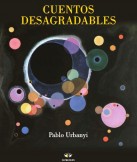Hombres buenos
Categories: Spanish Peninsular Narrative
«En España, en tiempos de oscuridad, siempre hubo hombres buenos que, orientados por la Razón, lucharon por traer a sus compatriotas las luces y el progreso. Y no faltaron quienes intentaban impedirlo.» (Arturo Pérez-Reverte) A finales del siglo XVIII, cuando dos miembros de la Real Academia Española, el bibliotecario don Hermógenes Molina y el almirante don Pedro Zárate, recibieron de sus compañeros el encargo de viajar a París para conseguir de forma casi clandestina los 28 volúmenes de la Encyclopédie de D’Alembert y Diderot, que estaba prohibida en España, nadie podía sospechar que los dos académicos iban a enfrentarse a una peligrosa sucesión de intrigas, a un viaje de incertidumbres y sobresaltos que los llevaría, por caminos infestados de bandoleros e incómodas ventas y posadas, desde el Madrid ilustrado de Carlos III al París de los cafés, los salones, las tertulias filosóficas, la vida libertina y las agitaciones políticas en vísperas de la Revolución francesa. Basada en hechos y personajes reales, documentada con extremo rigor, conmovedora y fascinante en cada página, Hombres buenos narra la heroica aventura de quienes, orientados por las luces de la Razón, quisieron cambiar el mundo con libros, cuando el futuro arrinconaba las viejas ideas y el ansia de libertad hacía tambalearse tronos y mundos establecidos.
“In Spain, in the times of darkness, there were always good men who, guided by reason, fought to bring light and progress to their countrymen. And there were always those who tried to stop them.” (Arturo Pérez-Reverte) At the end of the 18th century, when two members of the Real Academia Española, Don Hermógenes Molina, the librarian, and Admiral Pedro Zárate were asked by their colleagues to travel to Paris to obtain the forbidden 28-volume Encyclopédie de D’Alembert y Diderot in an almost clandestine way, no one could suspect that the two academics would face such a dangerous succession of events: a journey of uncertainty and fear would take them down paths infested by bandits and uncomfortable inns, from the enlightened Madrid of Carlos III to the Paris of cafés, salons, philosophical discussions, libertine lifestyles, and the political agitation at the eve of the French Revolution. Based on real people and facts, and documented with extreme care, Good Men is poignant and fascinating throughout, as it narrates the heroic adventure of those who, guided by the lights of reason, tried to change the world with books, when the future was burying away old ideas, and the yearning for liberty was making thrones and established worlds begin to topple.









